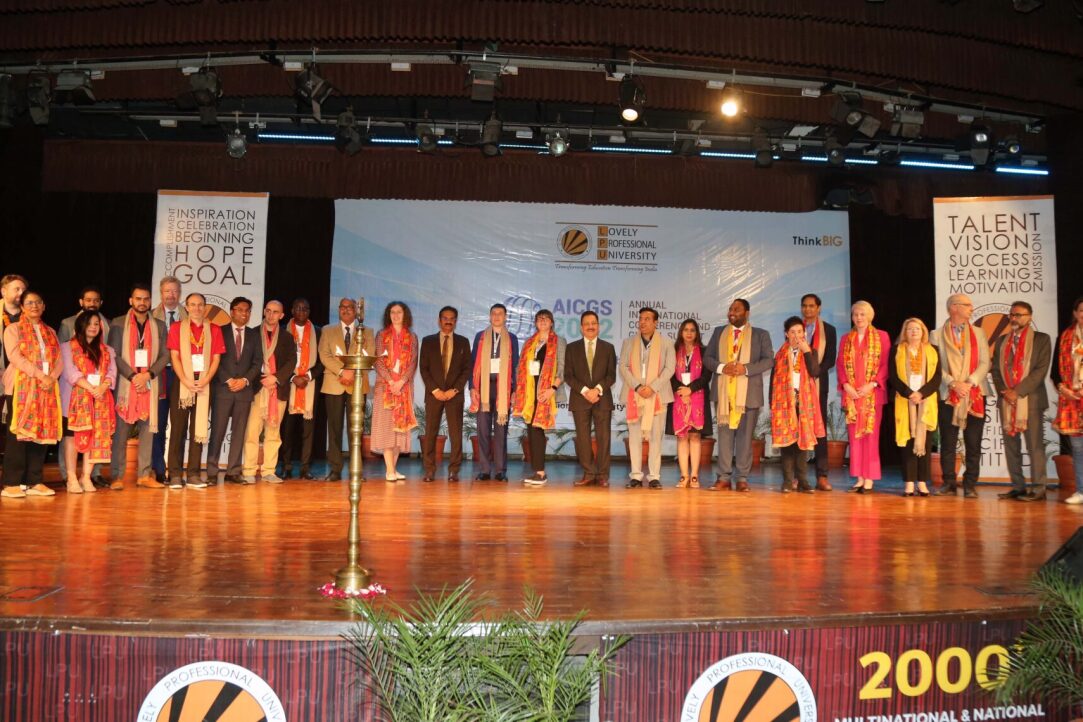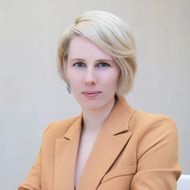HSE in India: ‘Cooperation Is Formed by the Development of Live Communication Between People’

HSE University is taking part in the Annual International Conference and Global Summit (AICGS-2023), which began in Phagwara, India, on October 30. This year’s topic of discussion was the new model of international cooperation in the field of sustainable development, as well as the prospects and global challenges faced by universities in the development of international ties today.
The summit is organised by Lovely Professional University (LPU) and held at its campus. Leading universities from 12 countries are taking part in the event, with Russia being represented by HSE University and ITMO University. LPU is one of the largest private universities in India, and is located in the city of Phagwara in the northern state of Punjab. The university is a partner of HSE University.
The summit programme includes panel discussions, guest lectures, talks with students studying on exchange programmes abroad, and a range of events aimed at introducing guests to the culture and customs of India. There are also plans for separate meetings between the deans of faculties in the fields of sociology, design, management, and business.
During the trip, the Russian delegation will also visit the Indian Institute of Management Indore, Delhi University, and Indira Gandhi Delhi Technical University for Women.
The HSE University delegation at AICGS-2023 is led by Anna Tyshetskaya, Director of HSE University-St Petersburg, who noted that this is not the university’s first trip to India. ‘Every time, our Indian colleagues open up new opportunities for cooperation with us,’ she said. ‘For example, students of HSE University-St Petersburg are taking part in a unique project organised by LPU: filming a documentary about India and its customs, student life, and education system.’
According to Anna Tyshetskaya, the international university community today understands that cooperation is not measured in terms of the number of exchange students, but rather ‘is formed by the development of live communication between people, which leads to such unique projects.’
Students of the Bachelor’s in Media Communications and the Master’s in Media Production and Media Analysis at HSE University-St Petersburg are taking part in an internship at LPU from October 28 to November 9, 2023. The main goal of the internship is to exchange knowledge and experience in the sphere of media and education. The project will culminate in the creation of a documentary about India filmed by students of HSE University and LPU. The HSE News Service previously reported on the project in detail here.
See also:
Environmental Regulation in Russia and India
In Schola’s latest instalment showcasing the winners of the International Academic Cooperation of HSE University competition, Aleksei Sorbale speaks about the project ‘Regional and Inter-Regional Associations in Norm-Building and Norm-Control in the Area of Environmental Regulation in Russia and India,’ carried out jointly with a research team from India’s University of Petroleum and Energy Studies (UPES).
Intellectual Capital in the Face of Shocks: Russia and Iran Explore Internationalisation
In today's issue of Schola, Mariya Molodchik, Senior Research Fellow at the International Laboratory of Intangible-Driven Economy and Professor at the School of Economics and Finance at HSE University’s Campus in Perm, discusses a joint project with Iran University of Science and Technology, titled 'Internationalization of Companies from Developing Countries: The Role of Intellectual Resources in Response to Exogenous Shocks.'
HSE Researchers Introduce Novel Symmetry-Aware Neural Network Architecture
Researchers at the HSE Laboratory for Geometric Algebra and Applications have developed a new neural network architecture that can accelerate and streamline data analysis in physics, biology, and engineering. The scientists presented their solution on July 16 in Vancouver at ICML 2025, one of the world's leading conferences on machine learning. Both the paper and the source code are publicly available.
Students from HSE and Other Universities Carry Out Research Expedition at New Chersonesos
As part of the Rediscovering Russia student expedition programme, HSE University organised a research trip under the framework of the School for Young Humanities Scholars to the New Chersonesos museum and church complex in Sevastopol. The results of this expedition will form the basis for proposals on educational projects aimed at shaping young people’s historical memory of the role of Chersonesos, Crimea, and the Byzantine legacy in the history of Russian culture and statehood.
HSE Researchers Determine Frequency of Genetic Mutations in People with Pulmonary Hypertension
For the first time in Russia, a team of scientists and clinicians has conducted a large-scale genetic study of patients with pulmonary arterial hypertension. The team, which included researchers from the International Laboratory of Bioinformatics at the HSE Faculty of Computer Science, analysed the genomes of over a hundred patients and found that approximately one in ten carried pathogenic mutations in the BMPR2 gene, which is responsible for vascular growth. Three of these mutations were described for the first time. The study has been published in Respiratory Research.
First Caucasus School on Experimental Research and Cognitive Sciences Takes Places in Adygea
On September 17–20, 2025, the First Caucasus School on Experimental Research and Cognitive Sciences took place at the Gornaya Legenda venue of Adyghe State University (ASU). The event was organised by the ASU Experimental Linguistics Laboratory, the HSE Centre for Language and Brain, and the HSE Centre for Sociocultural and Ethnolinguistic Studies. The school brought together over 50 participants—students, doctoral candidates, and early-career researchers from across Russia, along with lecturers and speakers from France, Serbia, China, Turkey, Kazakhstan, and Uzbekistan.
HSE Scientists Reveal How Disrupted Brain Connectivity Affects Cognitive and Social Behaviour in Children with Autism
An international team of scientists, including researchers from the HSE Centre for Language and Brain, has for the first time studied the connectivity between the brain's sensorimotor and cognitive control networks in children with autism. Using fMRI data, the researchers found that connections within the cognitive control network (responsible for attention and inhibitory control) are weakened, while connections between this network and the sensorimotor network (responsible for movement and sensory processing) are, by contrast, excessively strong. These features manifest as difficulties in social interaction and behavioural regulation in children. The study has been published in Brain Imaging and Behavior.
Scientists Develop New Method to Detect Motor Disorders Using 3D Objects
Researchers at HSE University have developed a new methodological approach to studying motor planning and execution. By using 3D-printed objects and an infrared tracking system, they demonstrated that the brain initiates the planning process even before movement begins. This approach may eventually aid in the assessment and treatment of patients with neurodegenerative diseases such as Parkinson’s. The paper has been published in Frontiers in Human Neuroscience.
Global AI Trends Discussed at International Foresight Workshop at HSE University
At an international foresight workshop on artificial intelligence held at HSE University, Russian and foreign scholars discussed the trends and challenges arising from the rapid development of AI.
'Biotech Is Booming Worldwide'
For more than five years, the International Laboratory of Bioinformatics at the HSE Faculty of Computer Science has been advancing cutting-edge research. During this time, its scientists have achieved major breakthroughs, including the development of CARDIOLIFE—a unique genetic test unmatched worldwide that predicts the likelihood of cardiovascular disease. With the active participation of HSE students, including doctoral students, the team is also working on a new generation of medicines. In this interview with the HSE News Service, Laboratory Head Maria Poptsova shares insights into their work.



